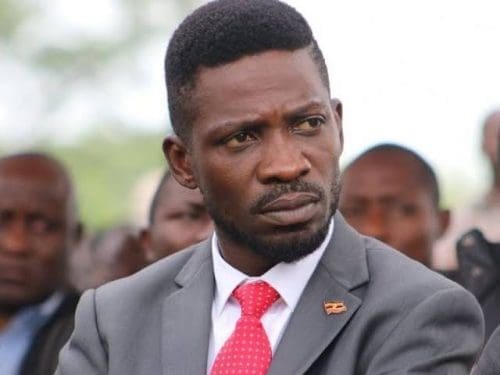Uganda’s opposition National Unity Platform launched an aggressive youth mobilization campaign in May 2025, aiming to recruit 3.5 million village-level monitors for January’s presidential election while analysts raised concerns about whether intensifying campaign activities could escalate beyond democratic participation.
The drive reflects opposition determination to challenge incumbent Yoweri Museveni after contested 2021 results, though observers warn that the scale of organizing in a politically tense environment carries risks of uncontrolled mobilization.
The campaign structure targets granular organizing. Rather than focusing on rallies and media messaging alone, NUP concentrated resources on recruiting monitors at village level across Uganda’s districts. These monitors would document polling procedures, observe voter behavior, and report irregularities during January’s election. Such grassroots networks represent sophisticated electoral infrastructure designed to provide immediate on-ground verification capability. However, the sheer scale 3.5 million organizers suggests ambition that extends beyond traditional election observation into broader political mobilization territory.
Timing carries strategic significance. NUP’s campaign launched shortly after the Electoral Commission cleared opposition candidate Robert Kyagulanyi (commonly known as Bobi Wine) to run on September 24, 2025. The party faced critical decisions about how to deploy resources across the roughly four-month campaign period. Rather than spreading efforts across traditional campaign activities, concentrating on village-level monitors represented calculated choice to build organizational capacity that could influence both election administration and post-election political dynamics. Eight candidates total registered for the January 14, 2026 presidential election, though the contest fundamentally shapes as matchup between Kyagulanyi and incumbent Museveni seeking sixth presidential term.
Electoral history informs this mobilization intensity. The 2021 presidential election produced contested results and post-election unrest, with opposition claiming irregularities and government dismissing challenges. International observers documented concerns about transparency and electoral integrity, though overall credibility varied across assessments. Opposition retained allegations of manipulation, influencing strategic decisions heading into 2026. Building verifiable on-ground documentation capacity represented response to concerns that centralized electoral administration alone could not guarantee transparency credible to all stakeholders.
The campaign’s scale raises governance questions for Ugandan authorities. Three and a half million organized monitors represent substantial organizational undertaking requiring logistics, training, communication infrastructure, and coordination across districts. From government perspective, such extensive organizing during campaign season carries potential for activities that exceed election observation into political mobilization that could complicate security management. Ugandan security forces historically maintain tension-filled relationships with opposition campaigns, and previous elections witnessed clashes between police and opposition supporters during campaign events. The 2026 context begins with heightened vigilance on both sides.
International observers will monitor January’s campaign environment closely. The African Union, regional bodies, and international election observation missions examine whether campaign spaces remain open for opposition activities, whether security responses proportionate, and whether electoral administration maintains technical credibility. Uganda’s international standing increasingly depends on election conduct demonstration. The country’s political trajectory over coming years depends substantially on 2026 election management and whether all stakeholders accept results as legitimate.
For opposition supporters, the village monitor strategy represents tangible pathway to electoral influence. Rather than accepting official results passively, organizing monitors distributes verification capacity across communities, creating countervailing information sources to official announcements. This approach reflects both hope that intensive documentation improves transparency and concern that without such efforts, official narratives would face insufficient challenge. The psychological dimension matters alongside operational considerations—mobilized supporters gain agency and investment in electoral process rather than remaining as spectators.
Analysts cautioned that campaign intensity at this scale carries inherent risks in politically polarized environments. Mobilization that feels empowering to supporters can appear threatening to incumbent authorities. Communications within monitor networks, training about what constitutes irregularities, and post-election coordination about documented concerns all proceed against backdrop of state security apparatus that views opposition organizing with suspicion. History suggests that even peaceful mass mobilization can trigger security responses in Uganda’s contested political space, particularly if events unfold amid election-day tensions.
The campaign environment shapes beyond formal election period. Ugandan media landscape includes state-aligned outlets, independent outlets, and increasingly social media platforms where campaign messaging circulates with limited editorial gatekeeping. Opposition campaigns leverage social platforms to reach younger voters, while government maintains significant media influence through traditional broadcasting. The information ecosystem heading into January remains fragmented and contested, with different constituencies consuming substantially different narratives about campaign themes and candidate positions.
For Uganda’s democracy, 2026 represents inflection point. Elections that produce contested results amid mobilized opposition and security tensions carry risks of post-election friction affecting governance and stability. Conversely, elections that achieve broad stakeholder acceptance despite competitive intensity strengthen democratic institutions and establish precedent for managing political competition within constitutional frameworks. The 3.5 million village monitors represent opposition bet that transparent, documented process produces results credible to all participants. Whether this intensive monitoring infrastructure contributes to election credibility or exacerbates tensions remains to be determined through January’s actual conduct.
Source: newsghana.com.gh











